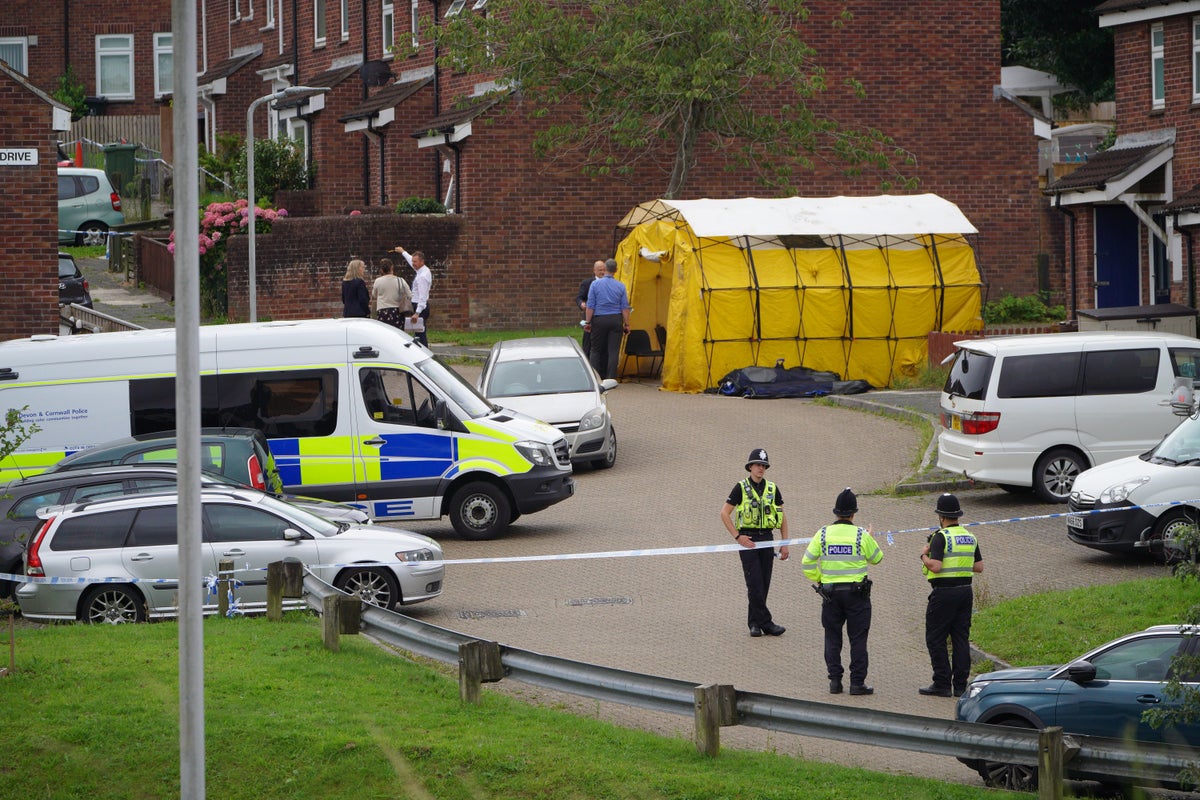
An image has been released showing the pump-action shotgun Jake Davison used to kill five people in Plymouth in 2021.
Davison, 22, killed his mother Maxine, 51, after a row at their home in the Devon city on the evening of August 12.
He then shot dead Sophie Martyn, three, her father Lee, 43, Stephen Washington, 59, and Kate Shepherd, 66, in the Keyham area of the city.
Davison, an apprentice crane operator, turned the black Weatherby pump-action shotgun on himself before armed police officers reached him.
An inquest in Exeter has heard Davison applied for a shotgun certificate in July 2017, with one issued by Devon and Cornwall Police in January 2018 that was valid for five years.
The force revoked Davison’s licence and seized his shotgun in 2020 after Davison assaulted two teenagers in a park, but returned them in 2021 – weeks before the killings.
On Thursday, jurors were told that returning a licence after it has been revoked is classed as a “high risk decision” in guidance issued to police in 2016.
Superintendent Adrian Davis, a firearms licencing manager at Warwickshire Police, gave evidence at the inquest about decisions classed as high risk when granting, revoking or returning a firearms or shotgun licence.
He described how Davison would have used a standard form used by forces across the country to apply for his licence, disclosing any medical conditions and convictions, as well as providing a person to act as a referee.
“There are a lot of people that shoot within the UK and the vast, vast majority pose absolutely no danger whatsoever to public safety or to the peace,” Mr Davis said.
“There are high risk decisions such as if a person has been previously refused to previously revoked – the decision to issue that licence is potentially high risk.
“Someone who has been involved in domestic violence or other behaviour, someone who has had their guns taken off them, which could be a voluntary surrender – there are many different circumstances.”
High risk decisions should be taken by the force’s firearms licencing manager or a more senior officer in certain circumstances, he added.
Applicants must declare if they have certain medical conditions – such as acute stress reaction, depression, anxiety, drink or drug issues – and neurological conditions including epilepsy and Parkinson’s disease.
The inquest heard Davison declared that he had autism on his application and gave consent for his GP to share information with police about his medical history.
However, Davison’s GP refused to provide an opinion to police assessing whether Davison should be issued with a shotgun certificate.
Supt Davis confirmed there was “no requirement” for a GP to provide a report for an application at that time, or even for officers to contact a GP, but officers should use “professional curiosity”.
When asked about the Weatherby pump-action shotgun held by Davison, Supt Davis said he had 36 years experience in clay pigeon shooting and had only seen that type of shotgun being used on one occasion.
Chief Superintendent Roy Linden, of Devon and Cornwall Police, spoke directly to the families at the inquest as he began his evidence.
He described how the victims had “needlessly lost their lives” and said the force recognised the “trauma” suffered by their families.
“It is our intention that this tragic incident will serve to drive improvements in firearms licencing both in Devon and Cornwall and nationally,” Mr Linden said.
Mr Linden described Devon and Cornwall Police as a “large rural force” and said it had the largest number of certificate holders in the UK.
In 2017, there were 30,588 shotgun certificates holders and 11,132 firearms certificates held.
He said there were around 3,000 new applications and renewals each year, with a backlog at the force at the time which has “probably increased now”.
When asked if the force had sufficient staff to deal with that number, Mr Linden replied: “The simple answer is no.”
He also told the inquest there were no records of dip sampling – audits used to check decision-making – in the firearms licensing department at the force at the material time.
Mr Linden said the GP’s refusal to provide information for Davison’s application was “not rare” at the time but acknowledged there was no policy in place for what to do when that happened.
The inquest continues.







